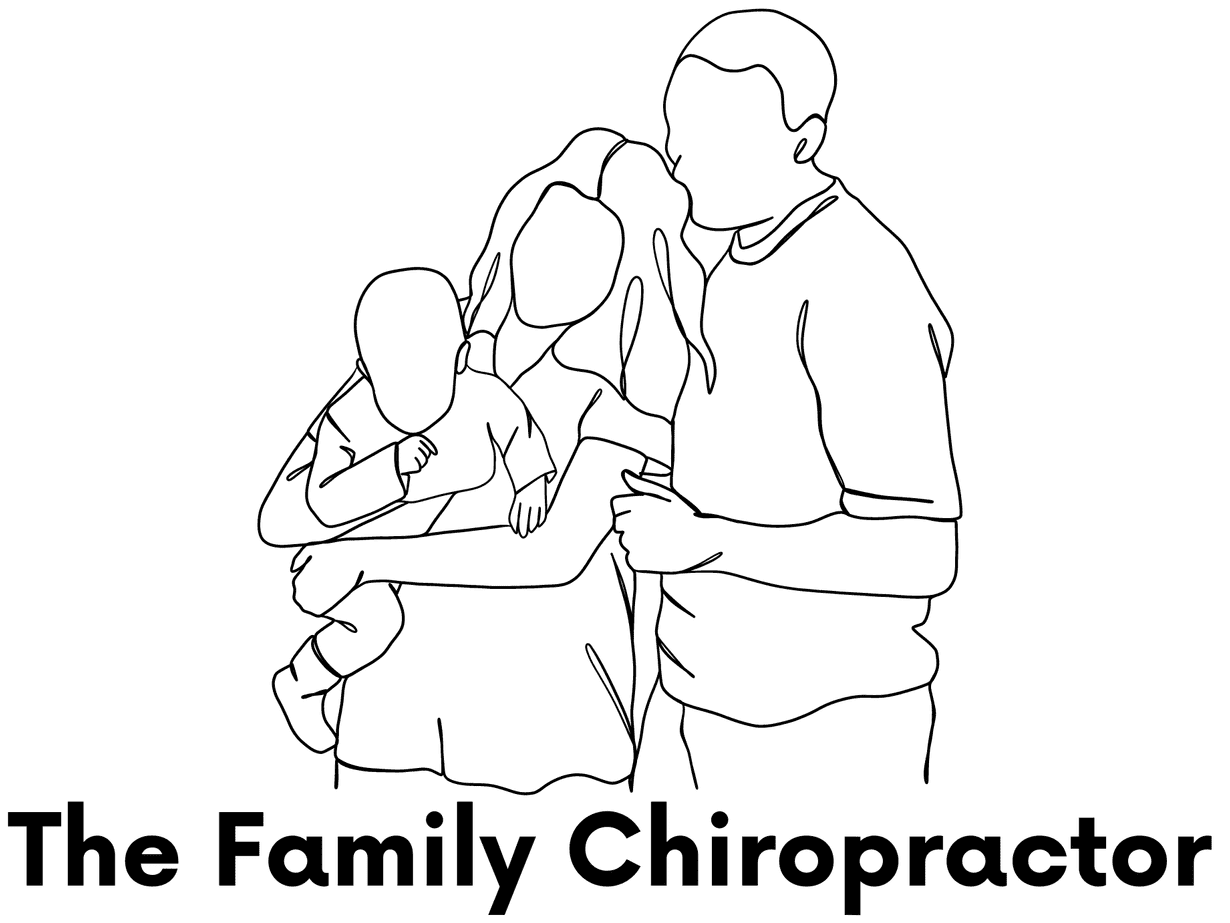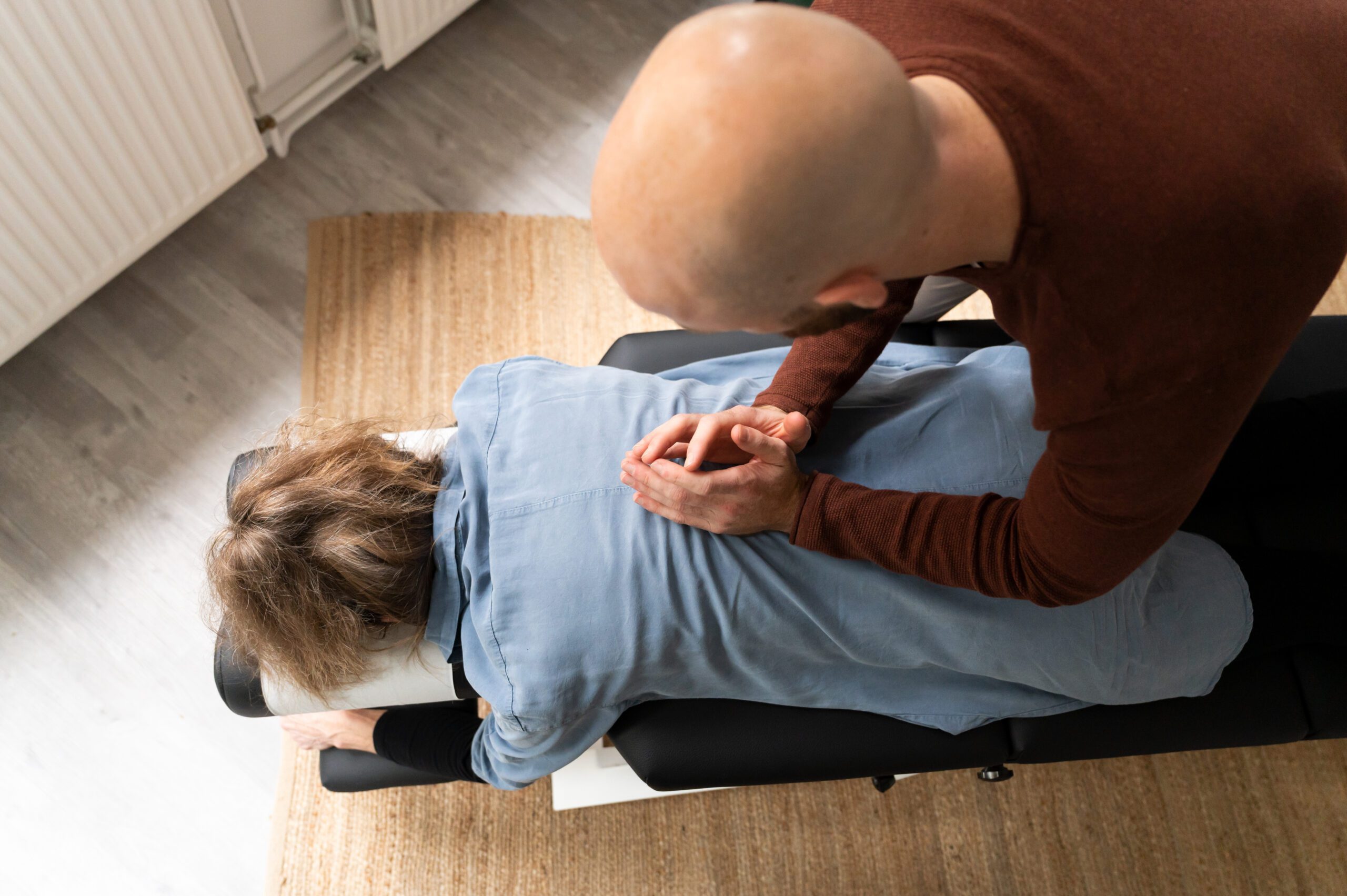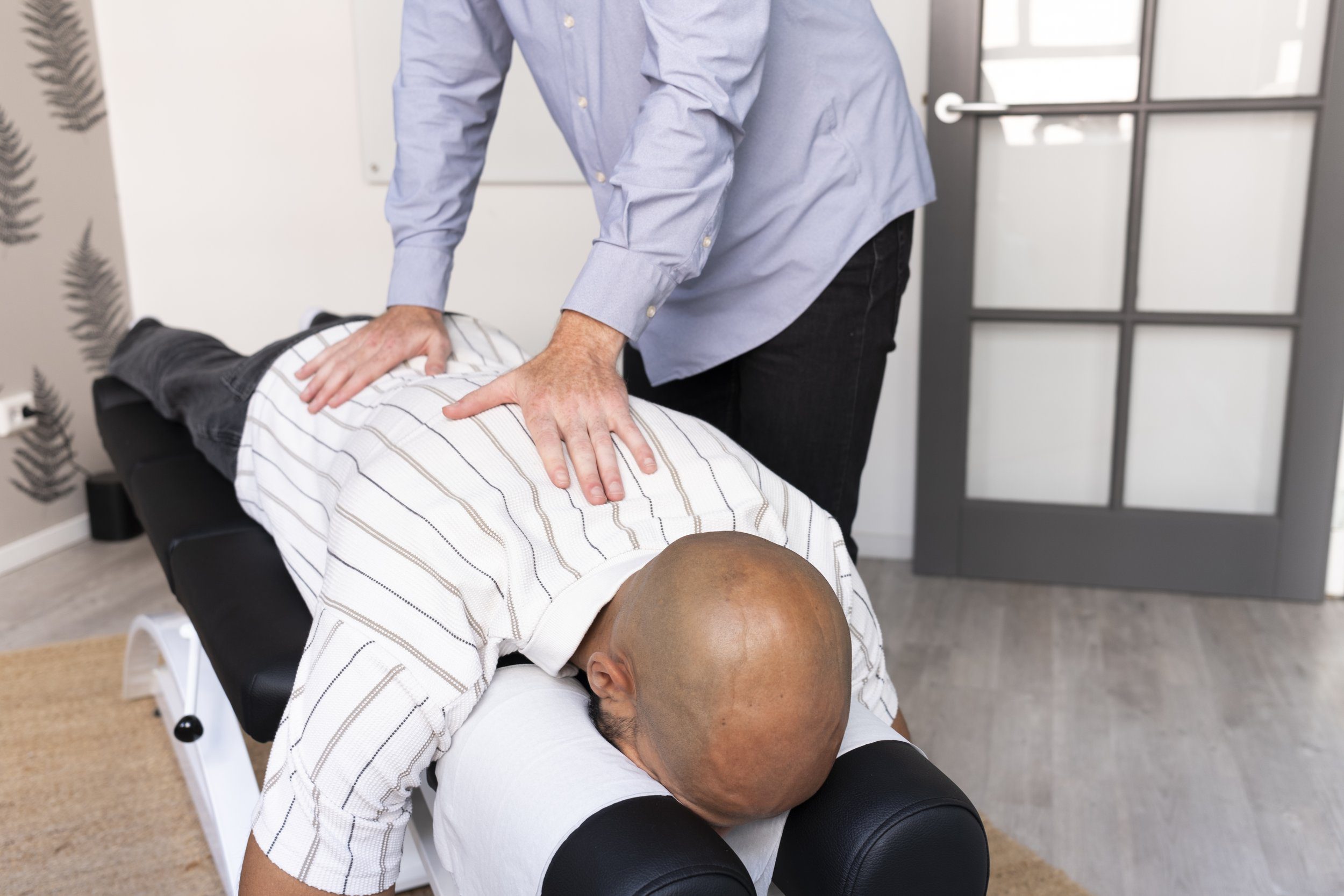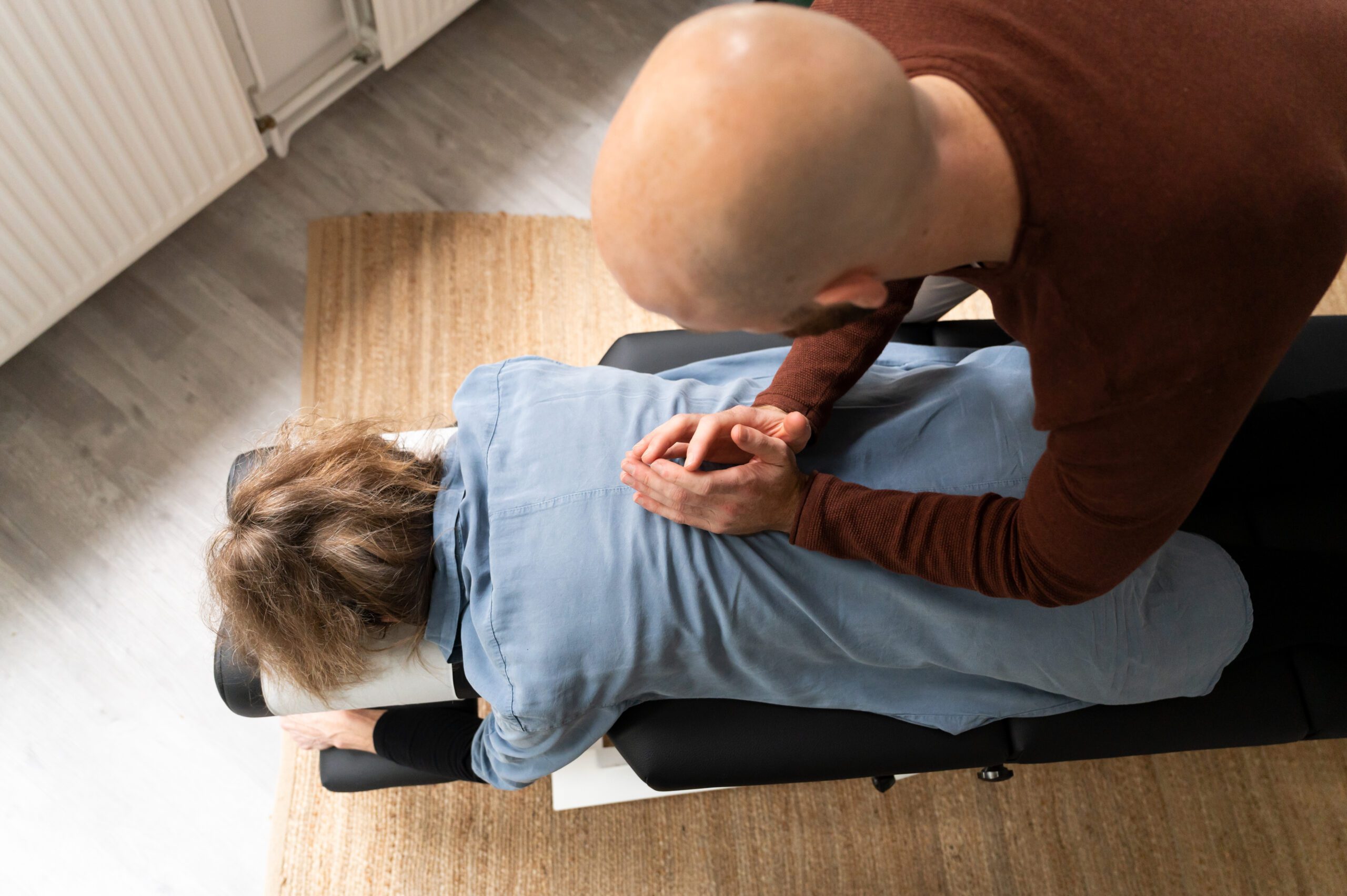Do you experience jaw pain on a regular basis? Whatever the cause of the pain, jaw pain can have a significant impact on your daily life - from eating to talking and from sleeping to relaxing. Fortunately, chiropractic offers a holistic treatment method that can provide relief. Indeed, jaw pain is rarely an isolated problem, so it is crucial to look at the complete picture and not just focus on the jaw area. That's why at The Family Chiropractor we look further, investigating the total interplay of your posture, sleeping posture, the health of your nervous system, muscles and lifestyle.
In this blog, we describe different types of jaw pain (such as jaw pain caused by stress, a cold or jaw pain on one side) and explain how a chiropractor can help with jaw pain complaints. We also provide tips on things you can do yourself to supplement your treatment and relieve the symptoms of jaw pain. Do you still have questions after reading this blog? Remember that you can always contact with us!
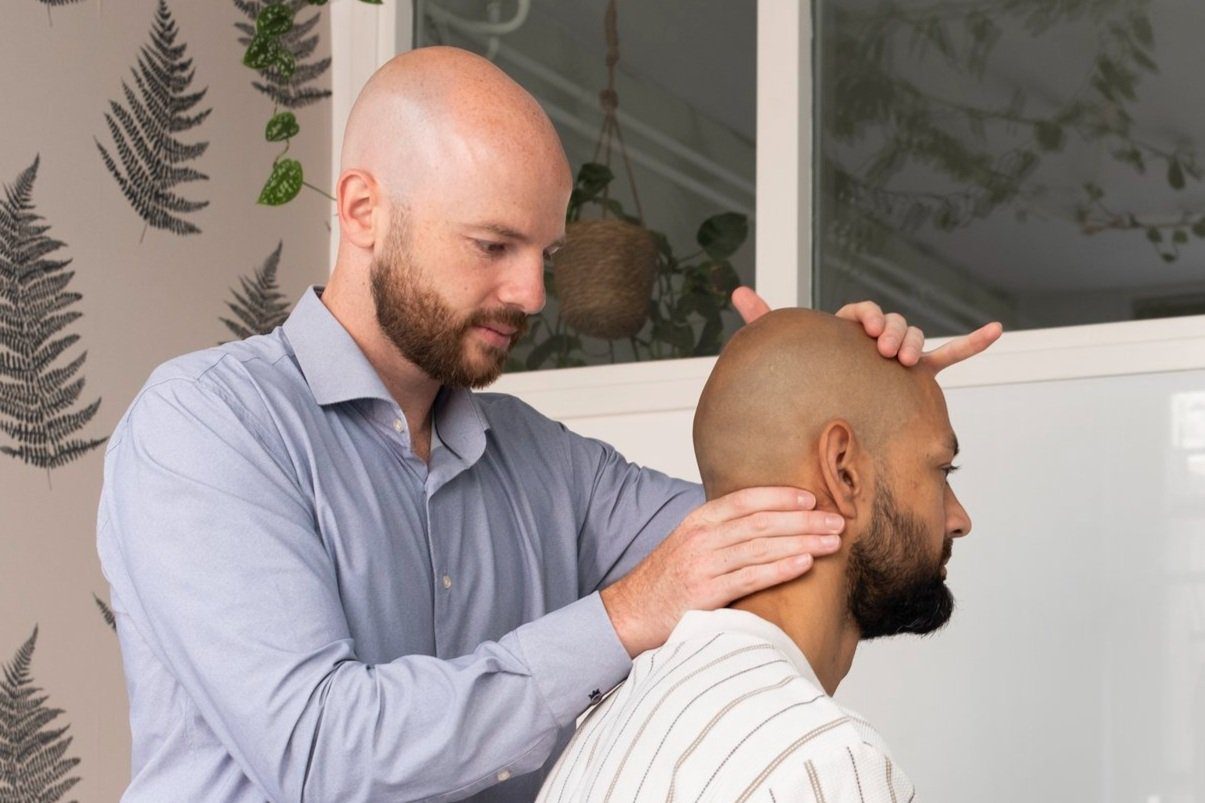
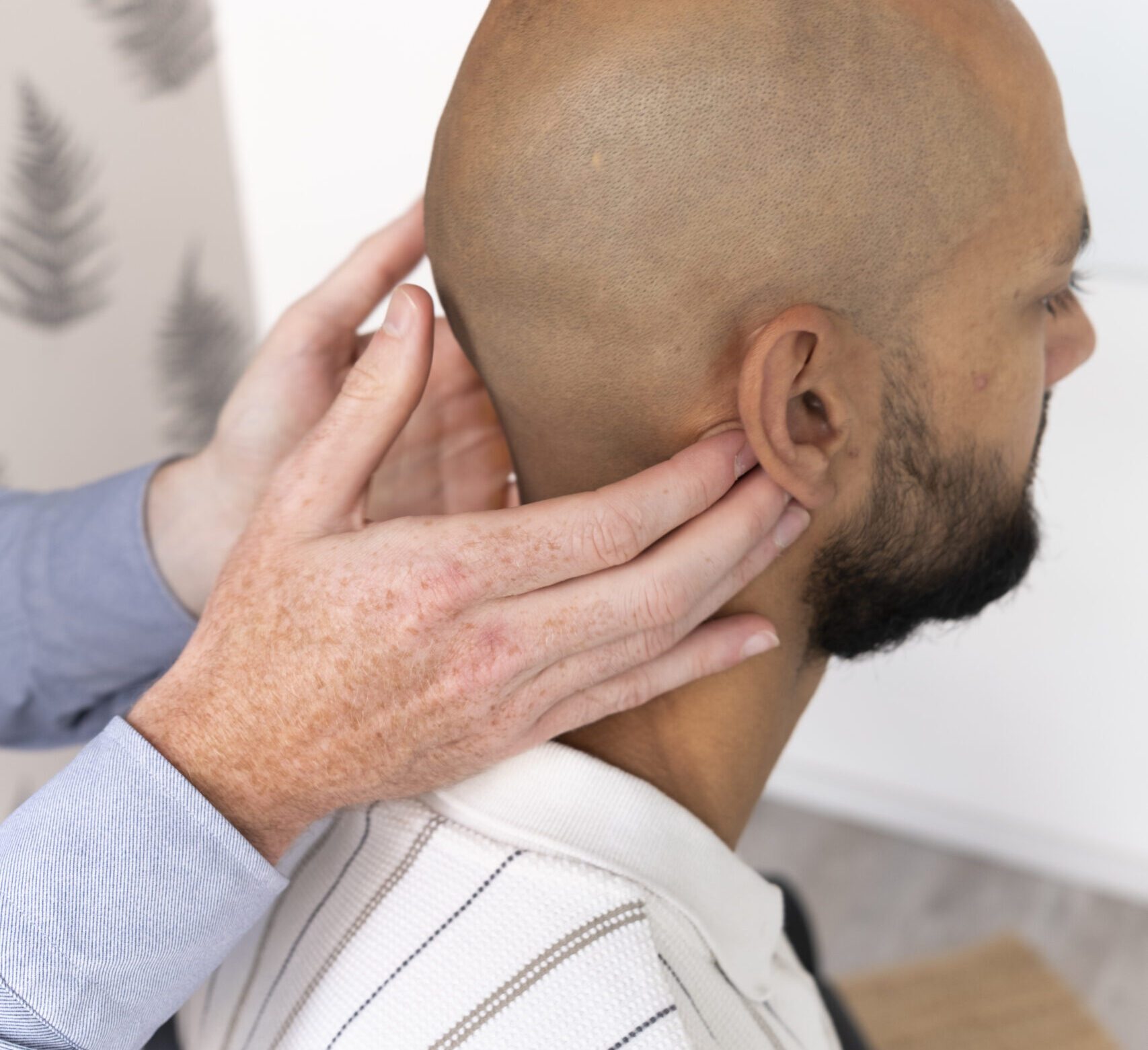
Different types of jaw pain
The causes of jaw pain are often diverse and not always immediately obvious. Every individual and every complaint is unique, and it is important to consider on a personal level what factors could possibly play a part in causing your jaw pain. However, below we discuss some general, common forms of jaw pain and triggers that can cause jaw pain. That way, you can already get some idea of which category your symptoms might fall into.
Jaw discomfort when stressed
Did you know that jaw pain due to stress is one of the most common but least known tension complaints? Many people experience tension in their bodies on a daily basis, but do not realise that this stress literally locks in their jaws. With jaw pain stress, you often unconsciously clamp your jaws together, both during the day and at night. This leads to overloading of the jaw joint and tense jaw muscles,resulting in complaints such as pain when chewing, headaches and even radiating pain to ears. It can also affect the quality of sleep, and people who suffer from jaw pain stress also often suffer from teeth grinding and headaches.
This form of jaw pain usually occurs gradually and is often aggravated by other factors such as poor posture, (prolonged) lack of sleep or breathing problems. A chiropractor can help reduce tension in your jaw and neck area, restore joint balance and calm your nervous system. Combined with relaxation techniques and stress management, this can often provide lasting relief from jaw pain caused by stress.
Common cold
Many people notice that when they have a cold, they not only suffer from a sore nose and throat, but also from jaw pain. Jaw pain during a cold is more common than you might think, and can be quite unpleasant. The cause often lies in the sinuses, which become inflamed or blocked during a cold. This pressure builds up in the face and can radiate to the jaw area, leading to that typical jaw discomfort during a cold. This also explains why people often feel jaw pain on one side (jaw pain on the left or jaw pain on the right) during a cold, especially if the inflammation is asymmetrical. This can also be accompanied by a heavy or painful feeling around your eyes, cheeks or even teeth. Although this pain is usually temporary, it can persist or worsen if the underlying tension in your jaw or neck area is not addressed. A chiropractor can help with jaw pain during a cold by relieving pressure in the jaw region.
Jaw pain at ear
Do you suffer from jaw pain near your ear or do you sometimes experience earache and jaw pain on one side at the same time? Then you are certainly not alone. Many people immediately think of an ear infection when they experience earache, but surprisingly, the cause may lie in the jaw joint. The jaw joint is located right next to the ear. Irritation or inflammation in this joint can lead to jaw pain near the ear, or earache and jaw discomfort on one side. These complaints are often accompanied by a clicking sound when opening the mouth or chewing. This creates the sensation of jaw pain near the ear, while the problem is actually in the jaw joint. Earache and discomfort in the jaw on one side is a particularly common complaint among people with unilateral tension or blockages in the neck and jaw region. A holistic chiropractor examines the mobility and alignment of these structures and can provide relief from both jaw and ear pain with targeted corrections and muscle relaxation techniques.


Left jaw pain only, or right jaw pain only
Jaw pain on the left side only, or jaw pain on the right side only, can have various causes, such as muscle tension, joint problems or even an incorrect bite. If you experience pain in your left jaw, the emphasis is often on tension on the left side of the jaw joint or surrounding muscles. Jaw pain on the right, on the other hand, can be caused by overuse of the right jaw when chewing or grinding your teeth. However, it is very important not to just look at the side where you are experiencing pain, but to look at the whole picture. A chiropractor will carefully examine where the tension is coming from and tailor the treatment accordingly.
(Chronic) headache and jaw pain on one side
Chronic tension in neck, shoulders and jaw can also lead to a combination of headache and jaw pain on 1 side. This is often caused by incorrect posture, teeth grinding or prolonged stress. Consequently, people often suffer from the same, recurring symptoms on a regular basis. These can be symmetrical (on both sides of the head and jaw), but if there is a slight imbalance, there is much more pressure on one particular side. When the jaw muscles on one side become overloaded, for example by frequent clenching of teeth, this can logically lead to headache and jaw pain on 1 side again. So the pain manifests itself on one side, but it is important to actually look at the whole body (not just the left or right side) and restore balance to the body.
How can a chiropractor help with this?
A chiropractor specialises in detecting and correcting blockages in the nervous system. Jaw pain naturally involves the jaw joint, but often the role of the spine - especially the cervical vertebrae - is forgotten. At the initial consultation, we examine the movement of your jaw and the alignment of your neck and skull. Disruption in the cervical vertebrae can irritate nerves running to the jaw joint, causing jaw pain. The chiropractor performs gentle, targeted adjustments aimed at restoring the natural movement of the spine and jaw joint. By clearing blockages in the nervous system, your body can once again send the right signals through the nerves. This relieves pressure on your jaw and muscles, and allows the body to regain balance. Besides chiropractic adjustments, a chiropractor will also give lifestyle advice (if required). Among other things, a chiropractor can advise you on optimal sleeping posture, stress reduction or breathing techniques. Indeed, all these lifestyle factors can make a positive contribution to reducing jaw pain
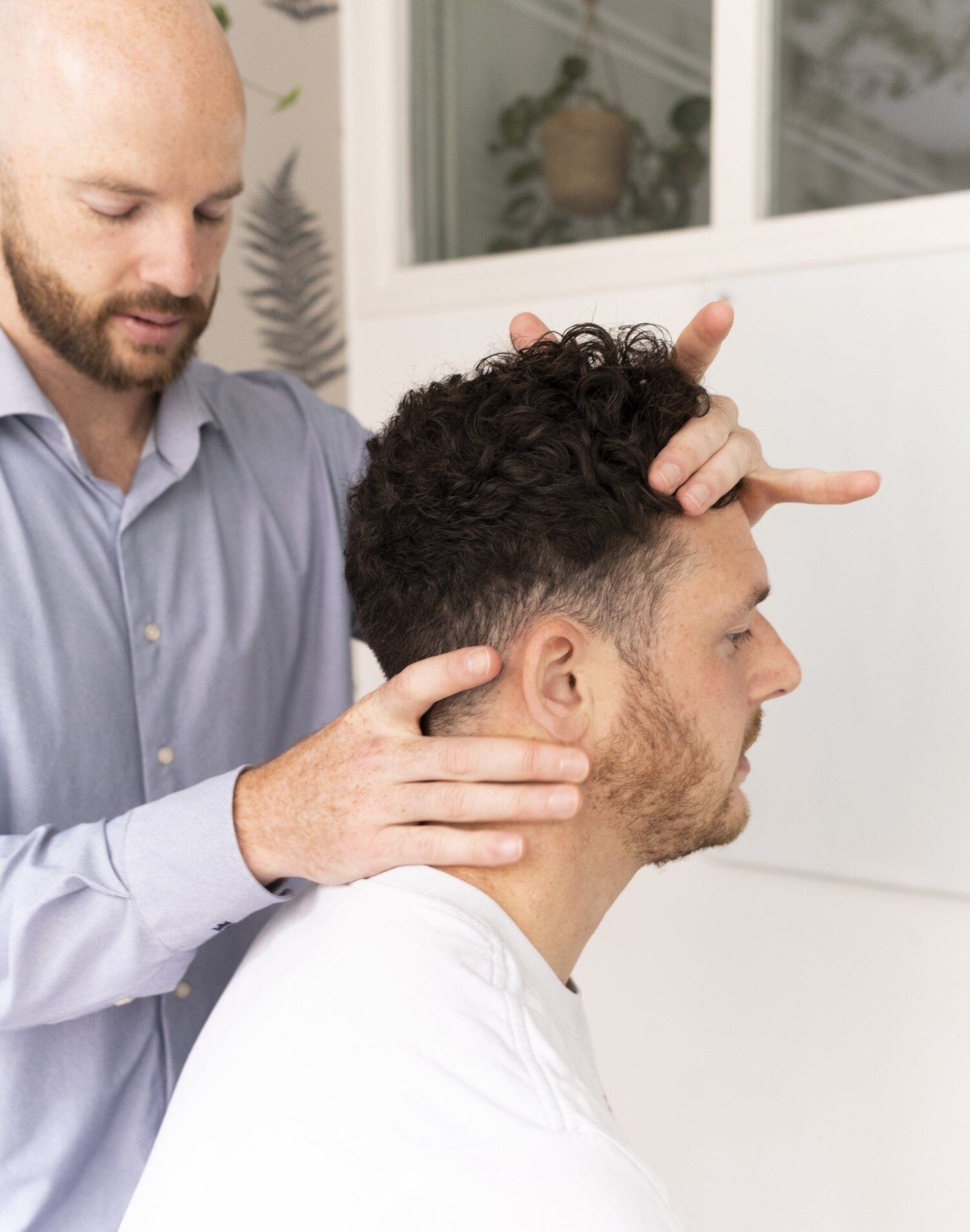
What can you do yourself for jaw pain?
In addition to visiting a chiropractor, there are also things you can do yourself to speed up healing and reduce jaw pain. Avoid chewing gum and hard foods when your jaw is acutely painful. Practise consciously relaxing your jaw (think: lips closed, tongue hanging ‘loose’ in your mouth, teeth apart, jaw gently open). Use warm compresses (e.g. a warm washcloth) on the jaw if you feel a lot of acute tension. This is not a long-term solution to the problem, but it can help you find temporary relief from the symptoms. Do you think your jaw pain is caused by stress? Then try breathing exercises, meditation or yoga. Relieving stress is crucial for the health of your entire body, not just for jaw problems, and you will be amazed at what relaxation can do for your health! Finally, sleeping on your back can help to avoid extra pressure on the jaw joint.
When to see the chiropractor?
It is always a good idea to have a professional look in if you suffer from jaw pain. The longer you hang around with symptoms, the longer they generally take to go away. Especially consider visiting the chiropractor if you:
Have been suffering from your symptoms for longer than two weeks
Regularly combining headache and experience jaw pain on one side
Pain in your jaw near your ear or radiating ear pain without obvious infection
Recognising recurring jaw pain caused by stress or tension
Jaw pain from colds persists even after your cold is gone
This calls for a holistic approach.
Jaw pain is often a signal that your body is out of balance. With a holistic approach and targeted chiropractic care, we can restore that balance - in a natural, effective way. Want to know if chiropractic care can help you with your jaw pain? Take a no-obligation contact with us for an intake or introductory consultation. You deserve a life without pain - and that starts with listening to what your body is trying to tell you!

